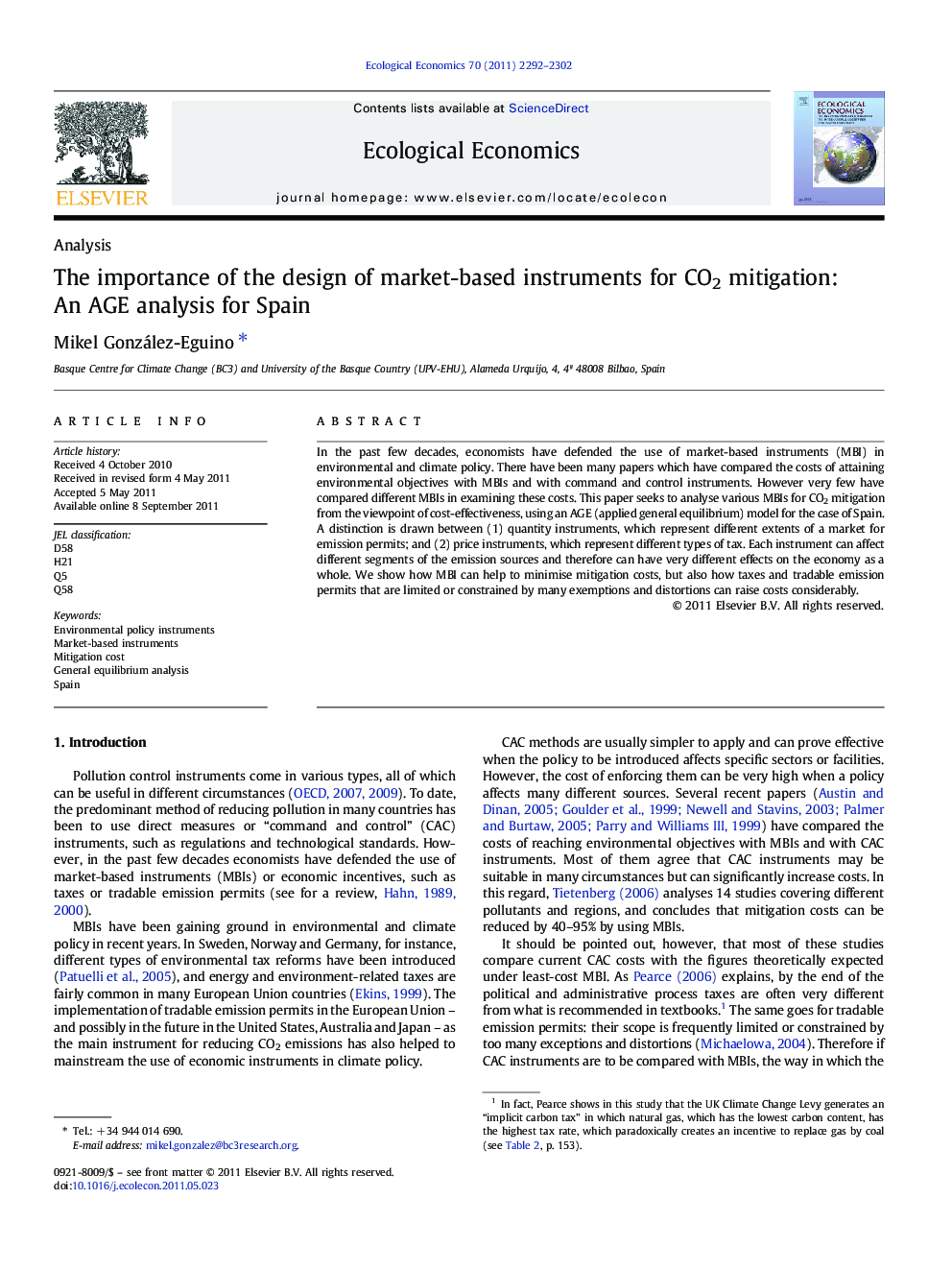| Article ID | Journal | Published Year | Pages | File Type |
|---|---|---|---|---|
| 5050494 | Ecological Economics | 2011 | 11 Pages |
In the past few decades, economists have defended the use of market-based instruments (MBI) in environmental and climate policy. There have been many papers which have compared the costs of attaining environmental objectives with MBIs and with command and control instruments. However very few have compared different MBIs in examining these costs. This paper seeks to analyse various MBIs for CO2 mitigation from the viewpoint of cost-effectiveness, using an AGE (applied general equilibrium) model for the case of Spain. A distinction is drawn between (1) quantity instruments, which represent different extents of a market for emission permits; and (2) price instruments, which represent different types of tax. Each instrument can affect different segments of the emission sources and therefore can have very different effects on the economy as a whole. We show how MBI can help to minimise mitigation costs, but also how taxes and tradable emission permits that are limited or constrained by many exemptions and distortions can raise costs considerably.
⺠This paper analyses various Market Based Instrument (MBIs) for CO2 mitigation from the viewpoint of cost-effectiveness. ⺠We show how MBI can help to minimise mitigation costs. ⺠However, MBI that are limited or constrained by many exemptions and distortions can raise costs considerably.
